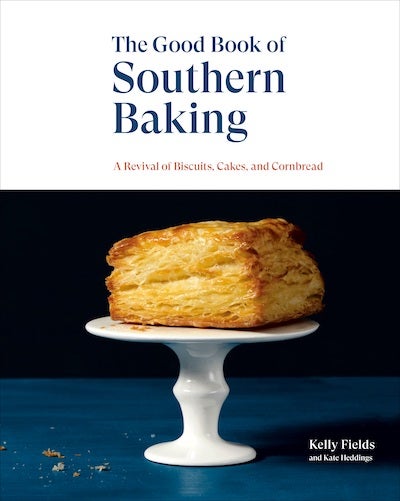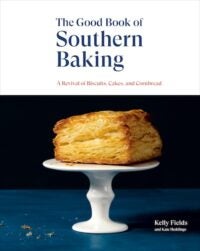






I have messed up a lot of biscuits in my time. I’ve overthought, overworked, underbaked, and overbaked more biscuits than anyone could reasonably justify. I’ve used the wrong flours and added too little fat—or too much (sure, there’s an argument to be made that there’s no such thing as too much fat in a biscuit, but nevertheless). I’ve made biscuits that come out like cake and biscuits that would make better ornamental rocks than food. After seventeen years of professional baking and being surrounded by crazy-talented folks like former Willa Jean baker Mike Carmody (one of the most talented bakers I’ve ever worked with, whose influence and passion have made me a better cook and person), I learned that Italian-style 00 flour gives biscuits the strength they need without the chew. So-named for how millers grade the texture of flour, 00 flour is most often used for making pizza and pasta, but it works great in biscuits because it absorbs the butter and buttermilk just right, creating the perfect flaky layers you want in a biscuit without the chewy, toothsome texture. My other secret? I always freeze these biscuits before baking and take them straight from the freezer to the hot oven: The colder they are, the higher they rise. You know what they say: the higher the hair, the closer to God.
Directions
- In a large bowl, mix the 00 flour, baking powder, sugar, and salt. Add the butter and use your hands to cut it into the flour, smearing the mixture between your fingertips to create flakes; there should be a combination of large and small flecks of butter, and the flour will start to take on the color of the butter. Make a well in the center of the dry ingredients and add 1 1⁄2 cups of the buttermilk. Using a rubber spatula, stir the dry ingredients from the edges into the buttermilk until incorporated. Add the remaining 1 1⁄2 cups buttermilk and stir just until a shaggy dough forms.
- Line a baking sheet with parchment paper. Dust your work surface liberally with all-purpose flour. Turn the dough out of the bowl and pat it into a rectangle; it’s okay if the dough barely holds together. Fold one-third of the dough to the center, then fold the other third on top, like folding a letter. Using a lightly floured rolling pin, roll the dough into a 6 by 13-inch rectangle and repeat the folding process. Roll again to a 6 by 13-inch rectangle, until about 1 inch thick. Cut the dough into 12 biscuits; each one should be a little less than 3 inches square (there might be some leftover dough). Transfer the biscuits to the prepared baking sheet. Place the baking sheet in the freezer for at least 12 hours and up to overnight, covering the biscuits with plastic wrap once they’re frozen.
- Preheat the oven to 400°F. Bake the frozen biscuits for 40 minutes, rotating the baking sheet after 20 minutes, until the biscuits have risen, are golden, and sound hollow when you flick the bottoms. Serve hot. Store wrapped loosely in foil or plastic wrap at room temperature up to overnight.
- Note: I dust the sticks of butter in flour before I grate them so they’re easier to handle.
Reprinted with permission from The Good Book of Southern Baking by Kelly Fields with Kate Heddings, copyright (c) 2020. Published by Lorena Jones Books, a division of Penguin Random House, LLC. Photographs copyright © Oriana Koren

